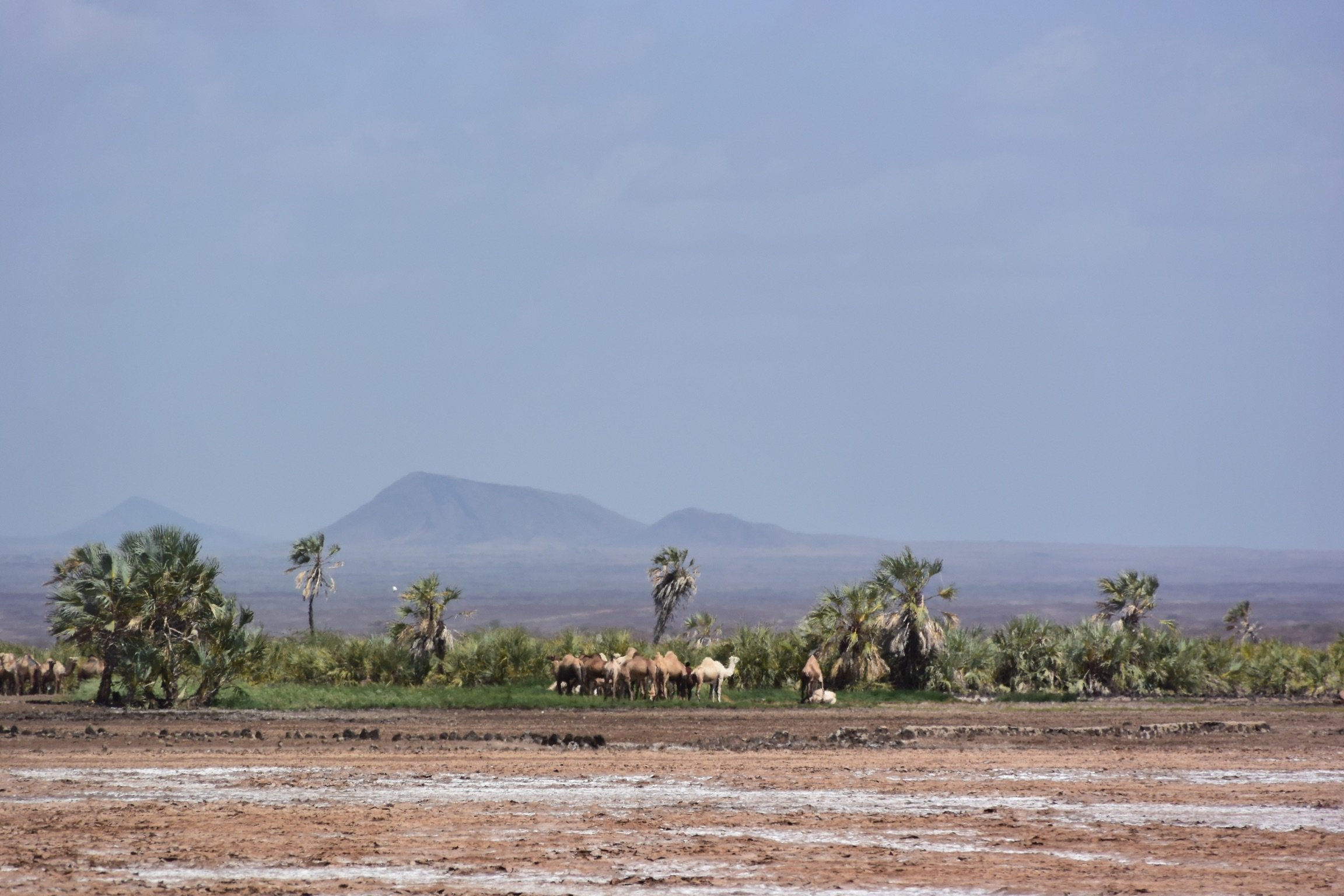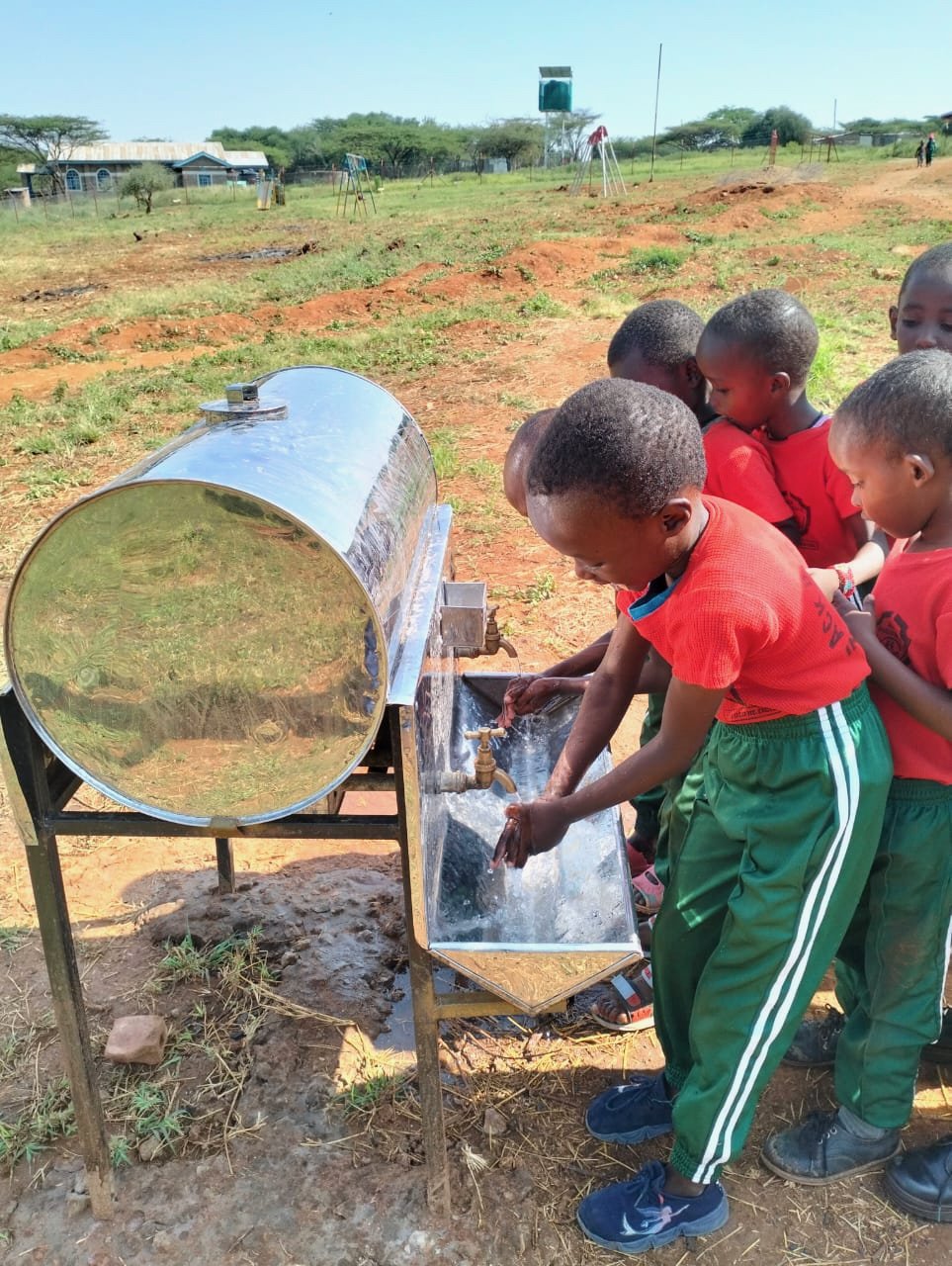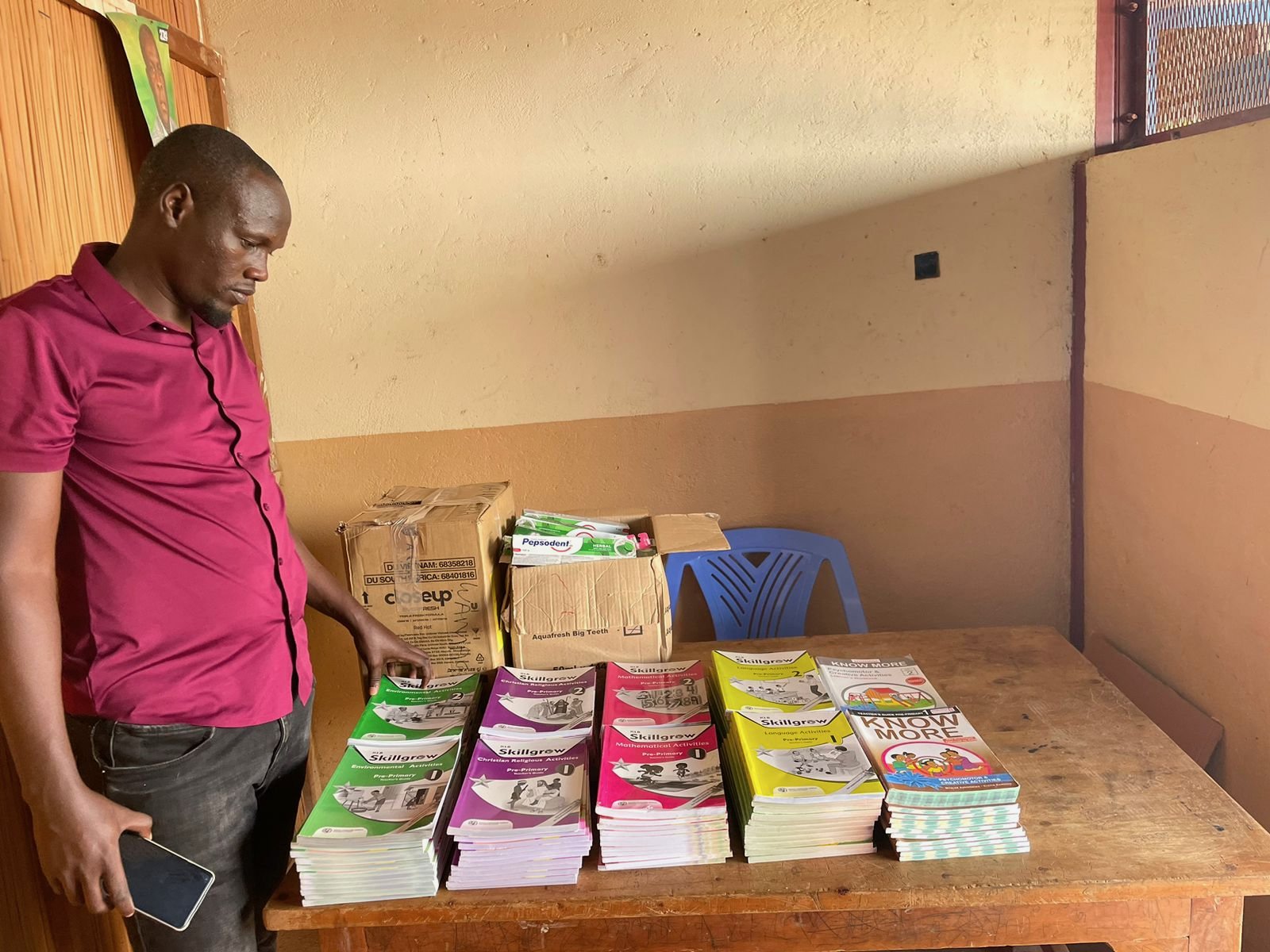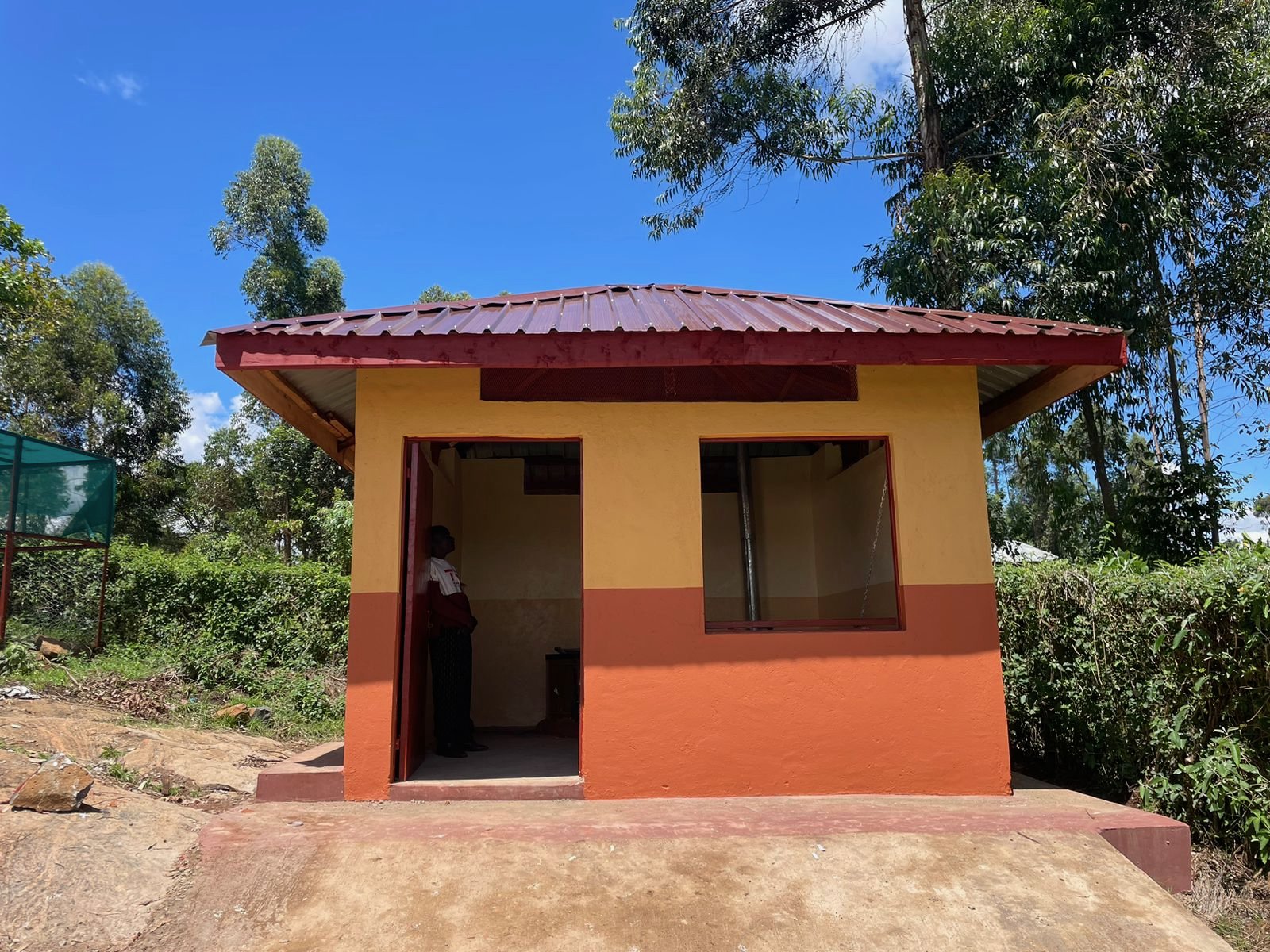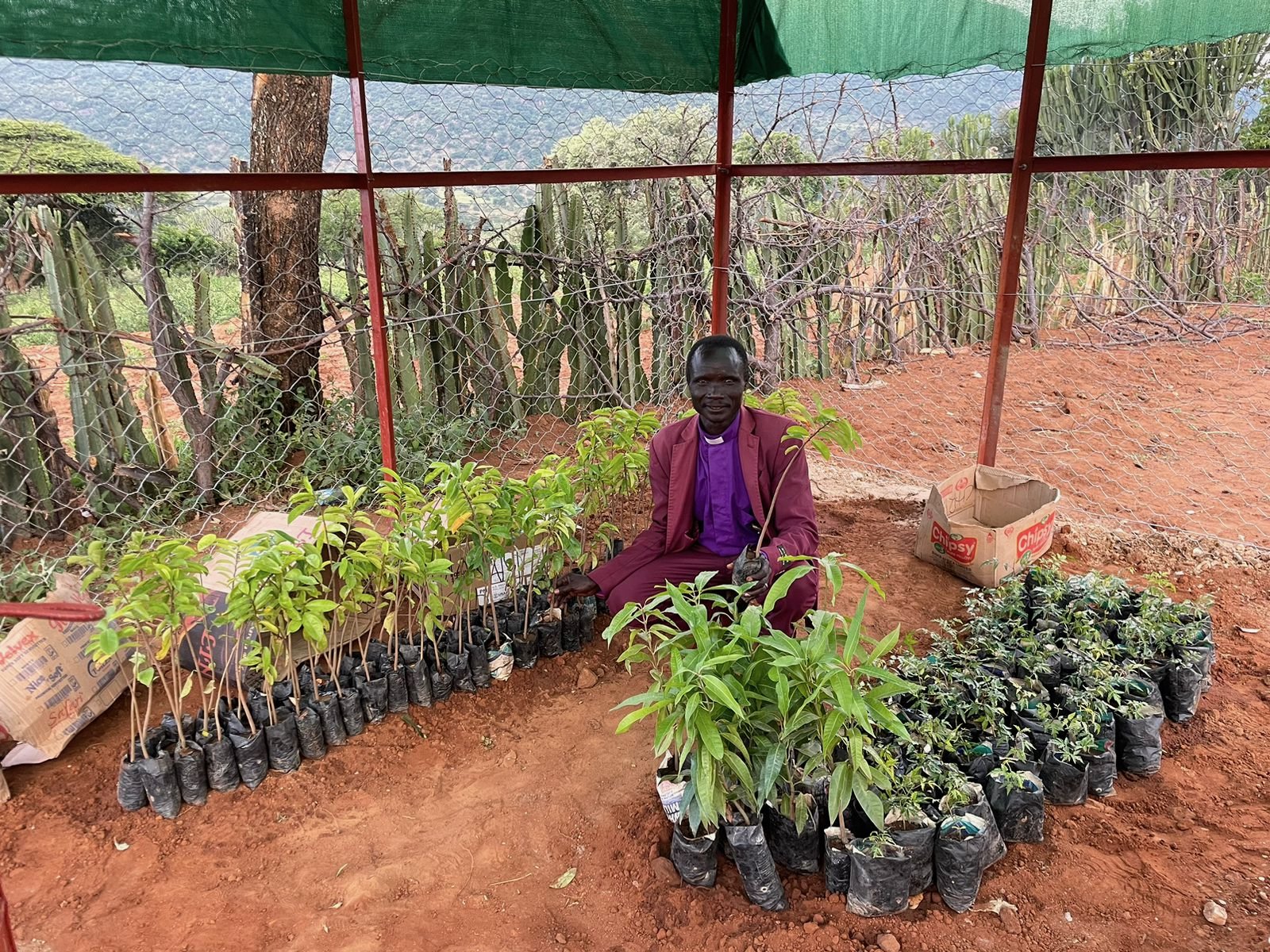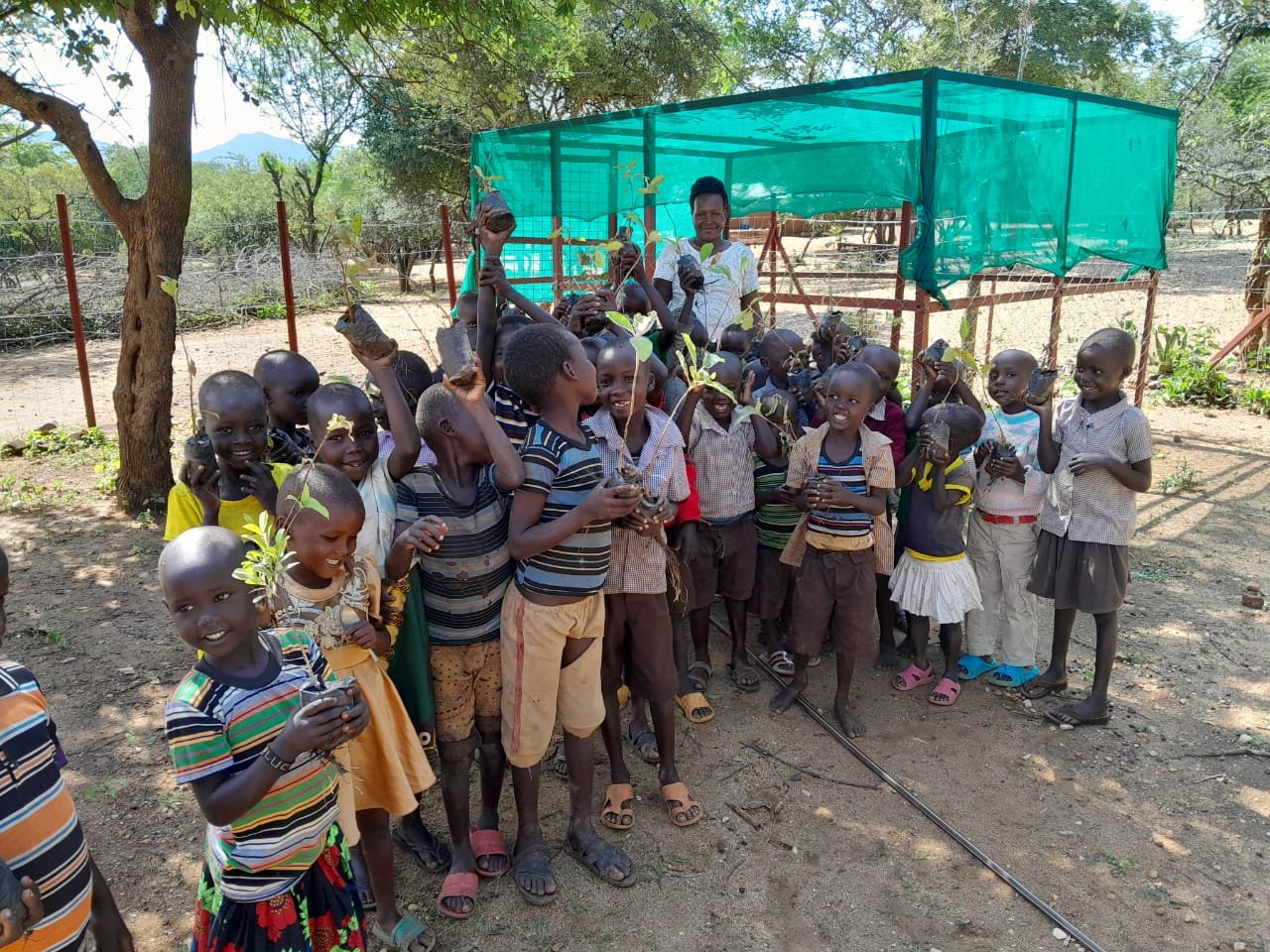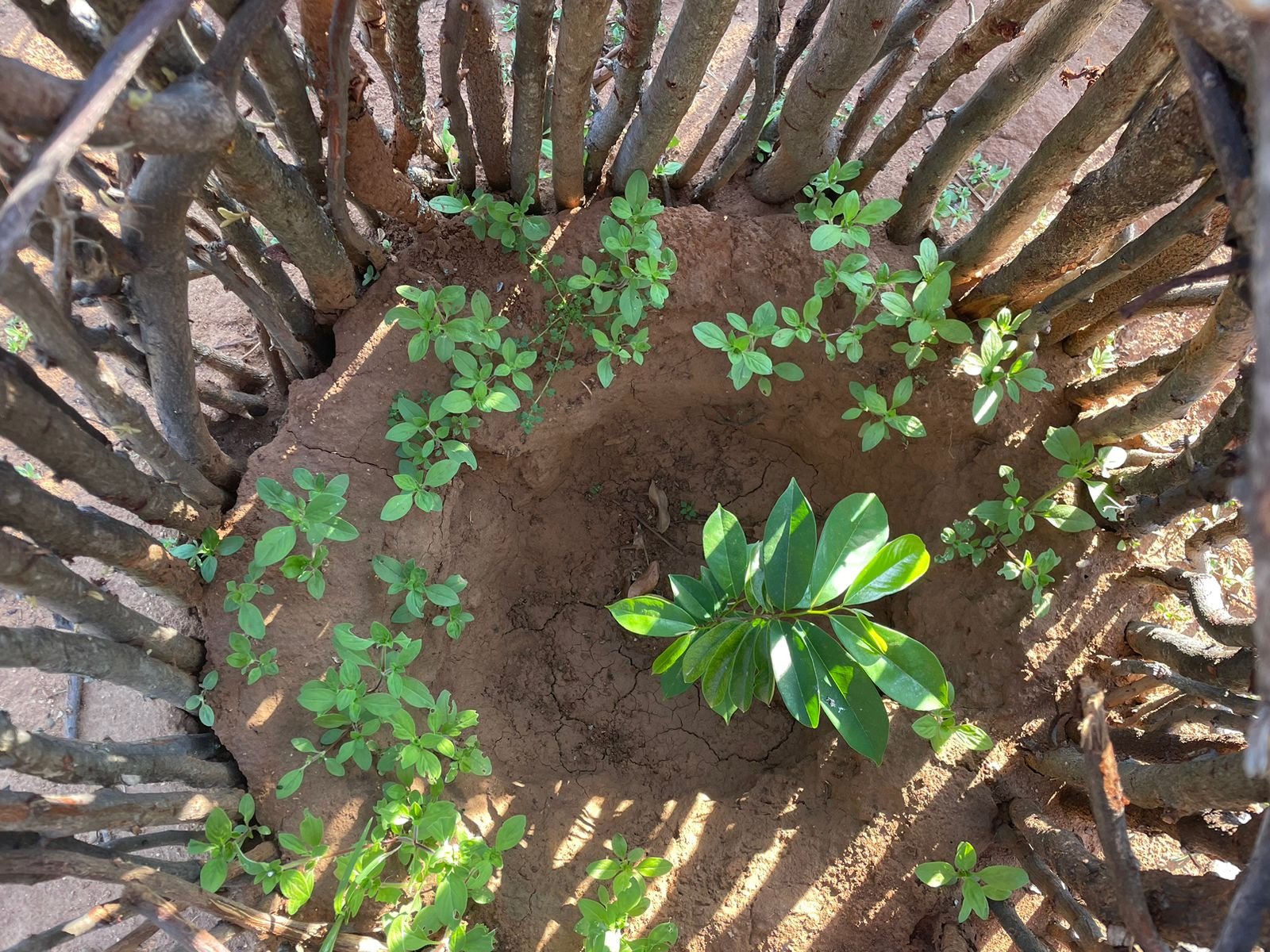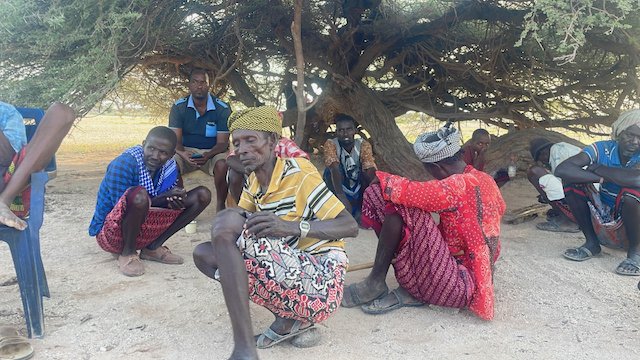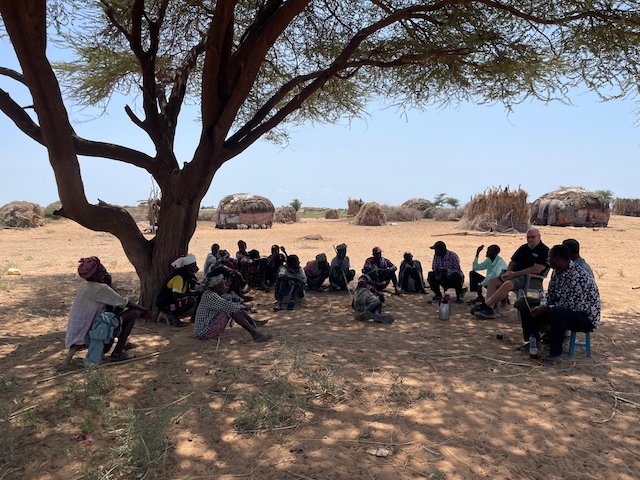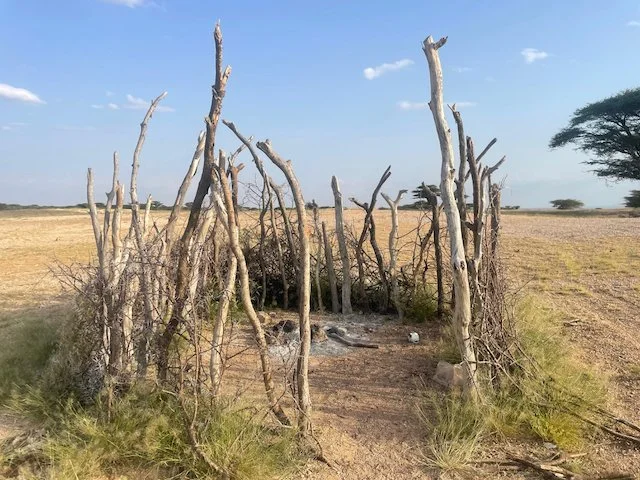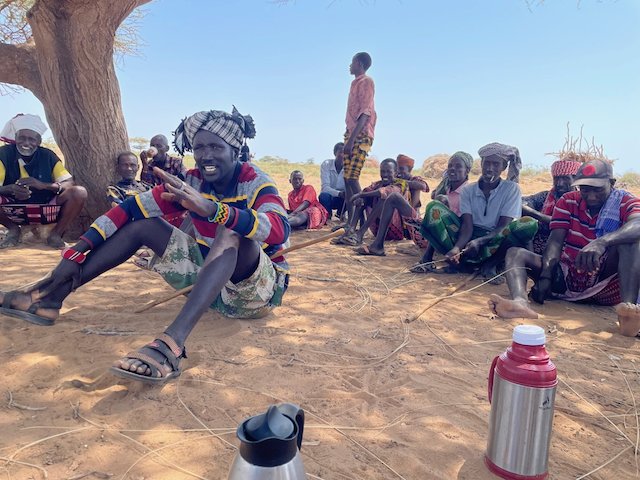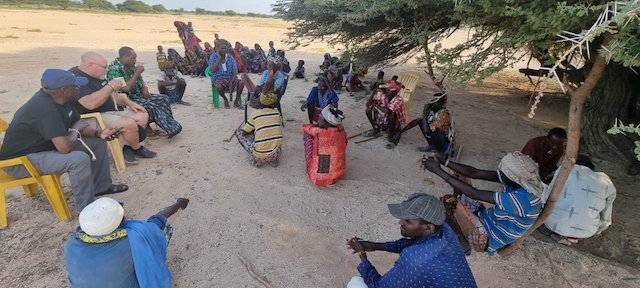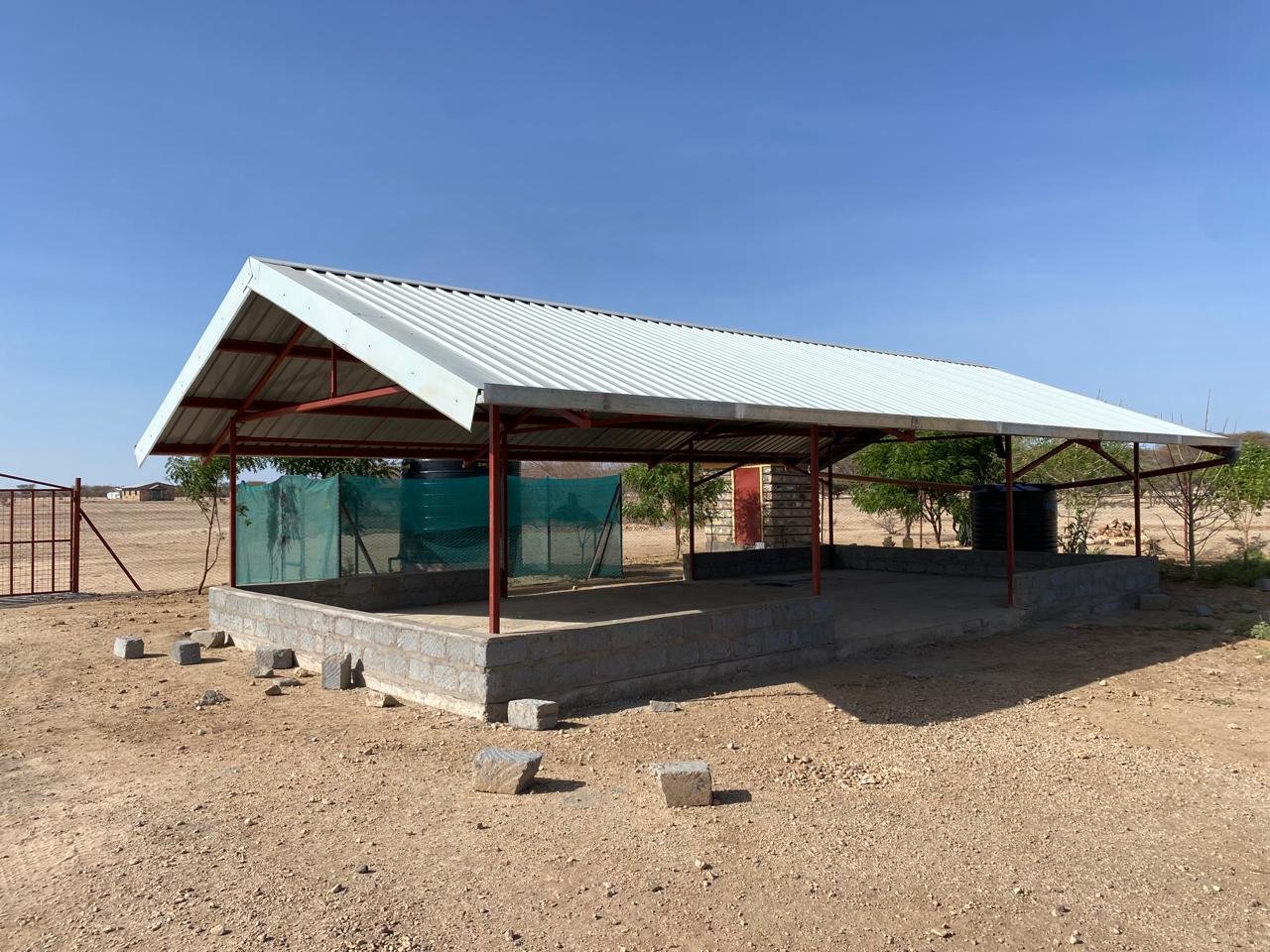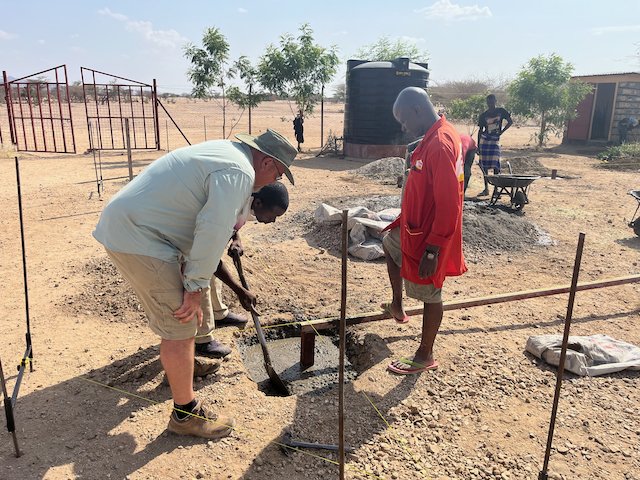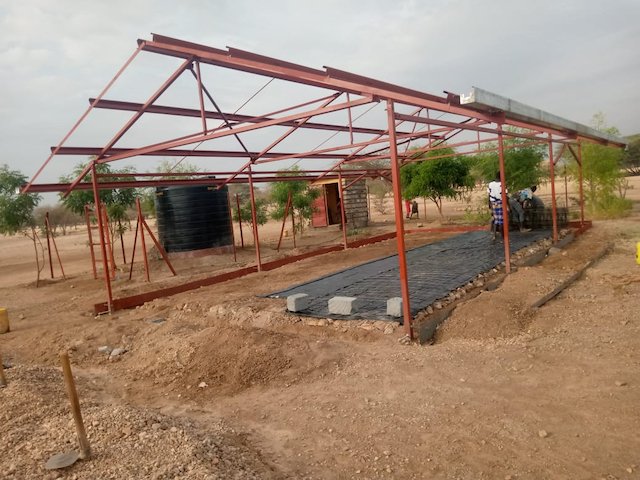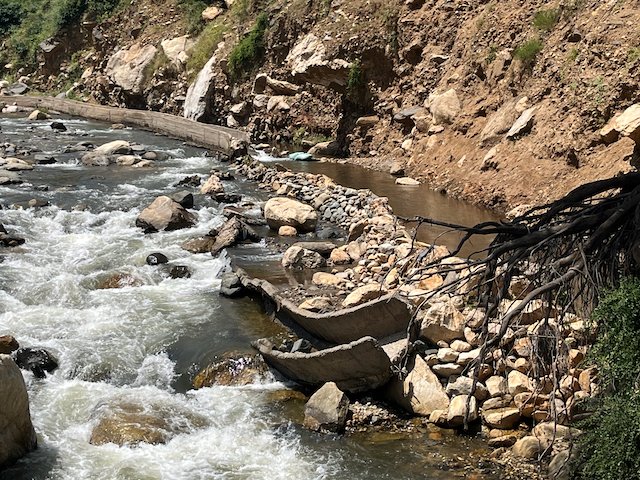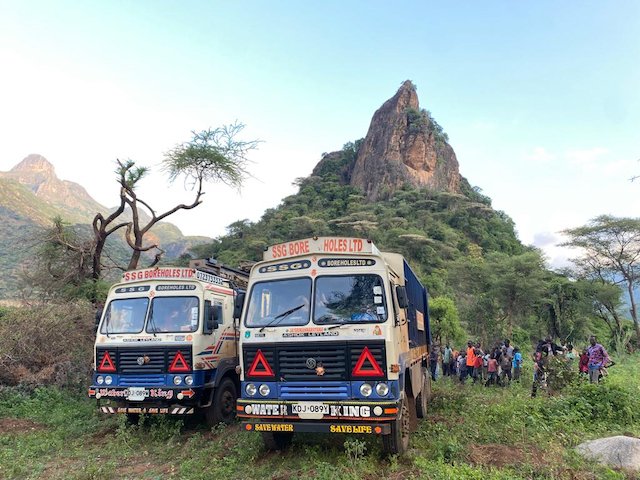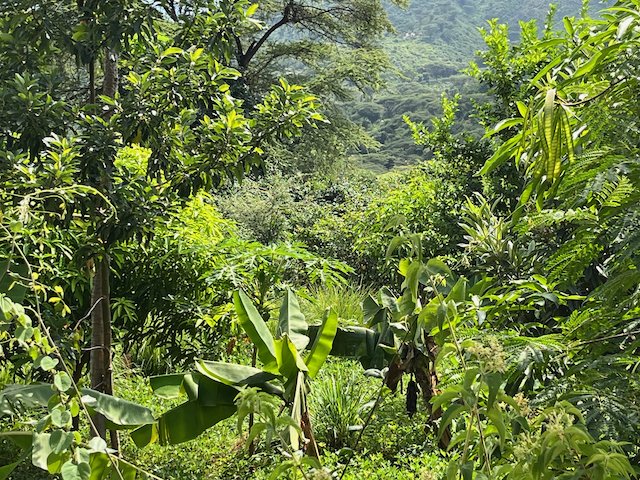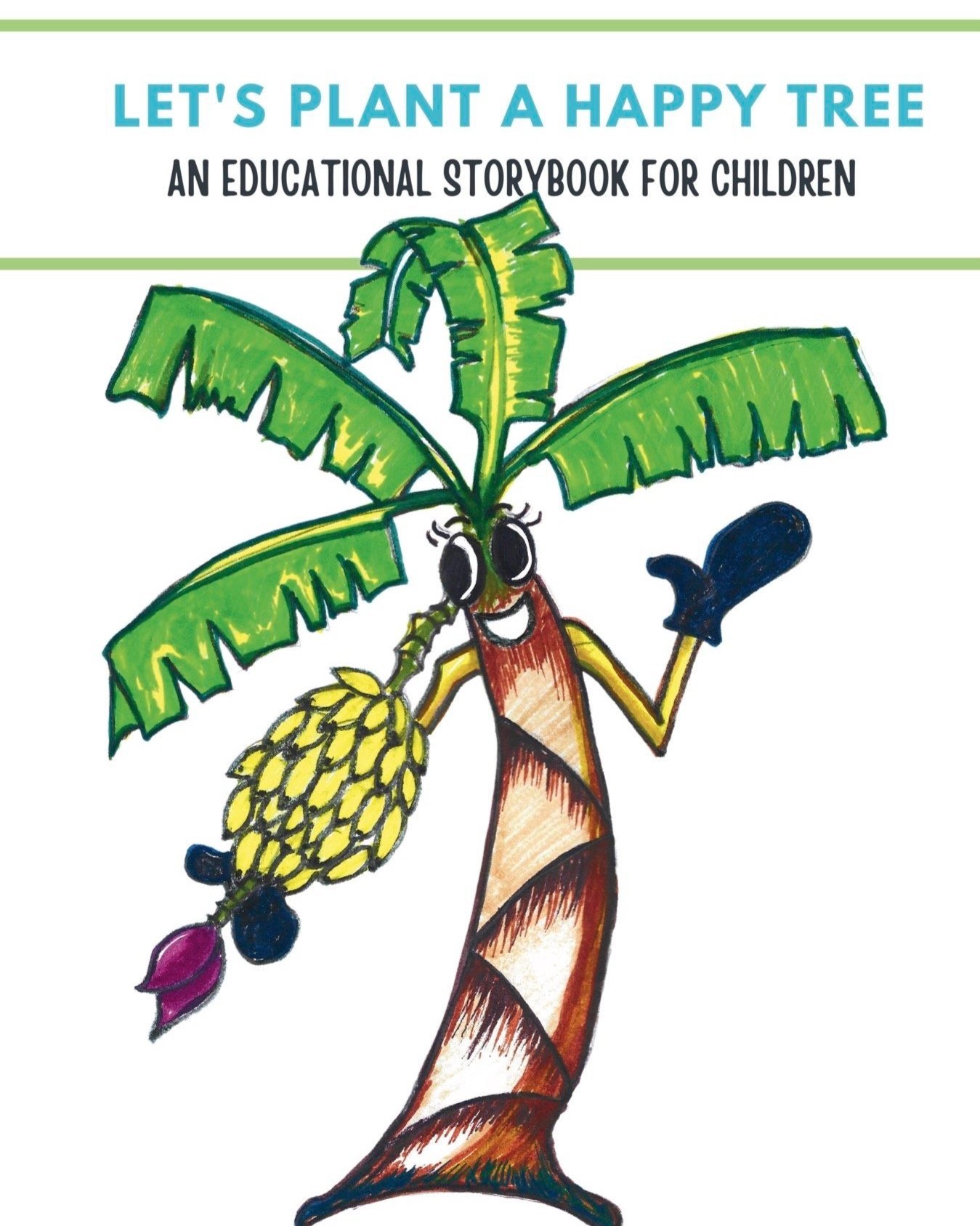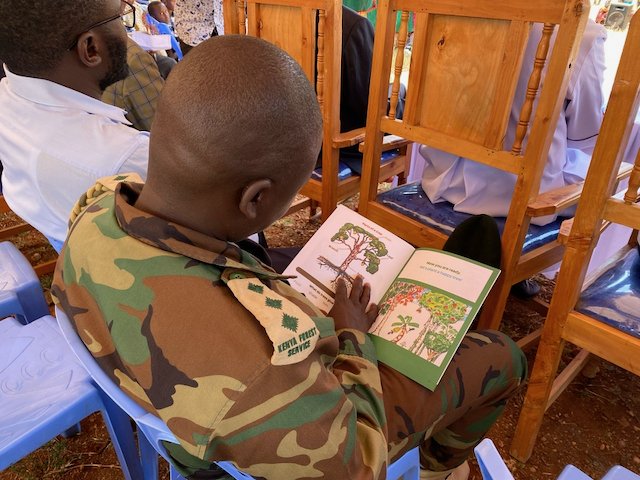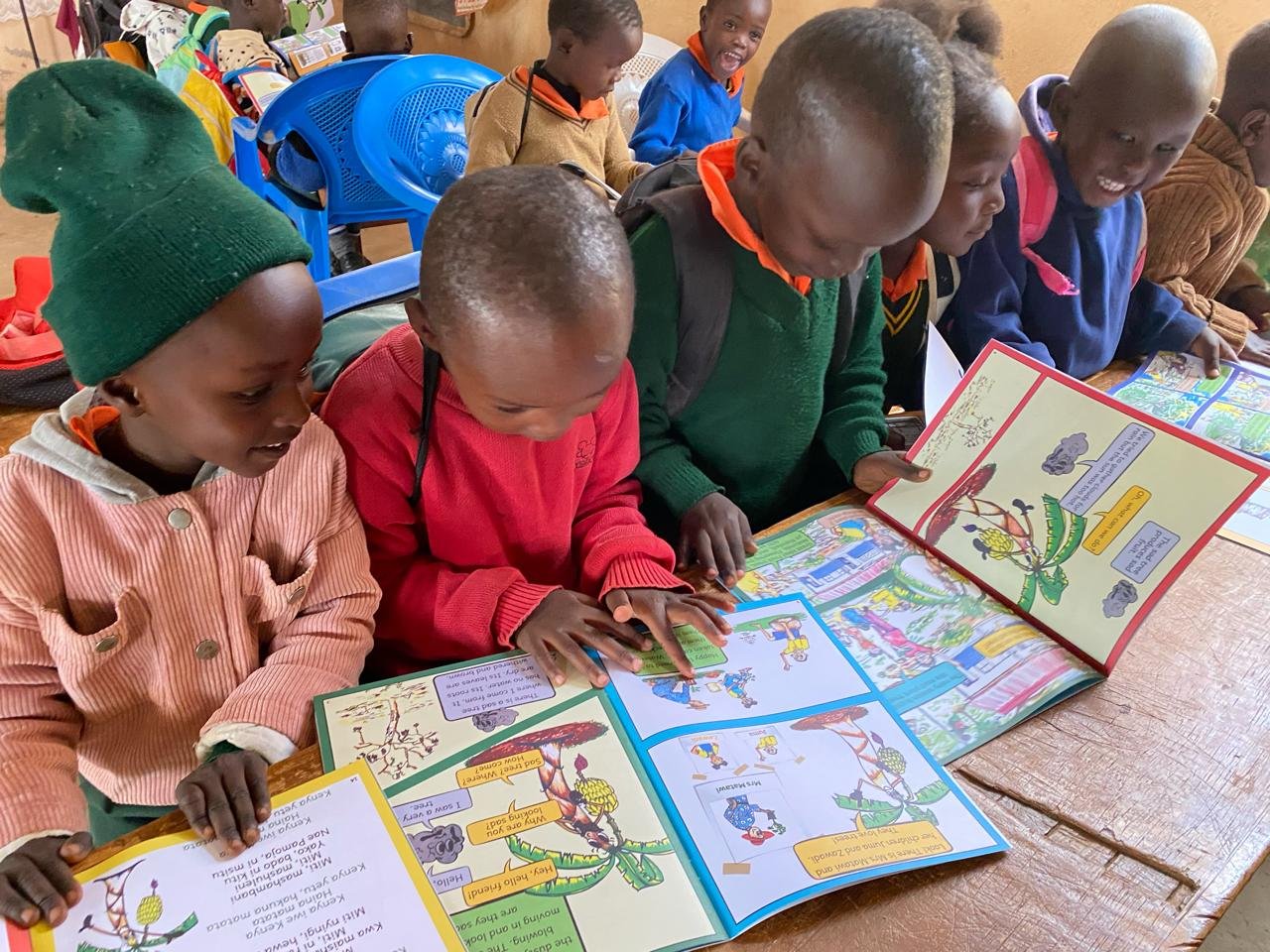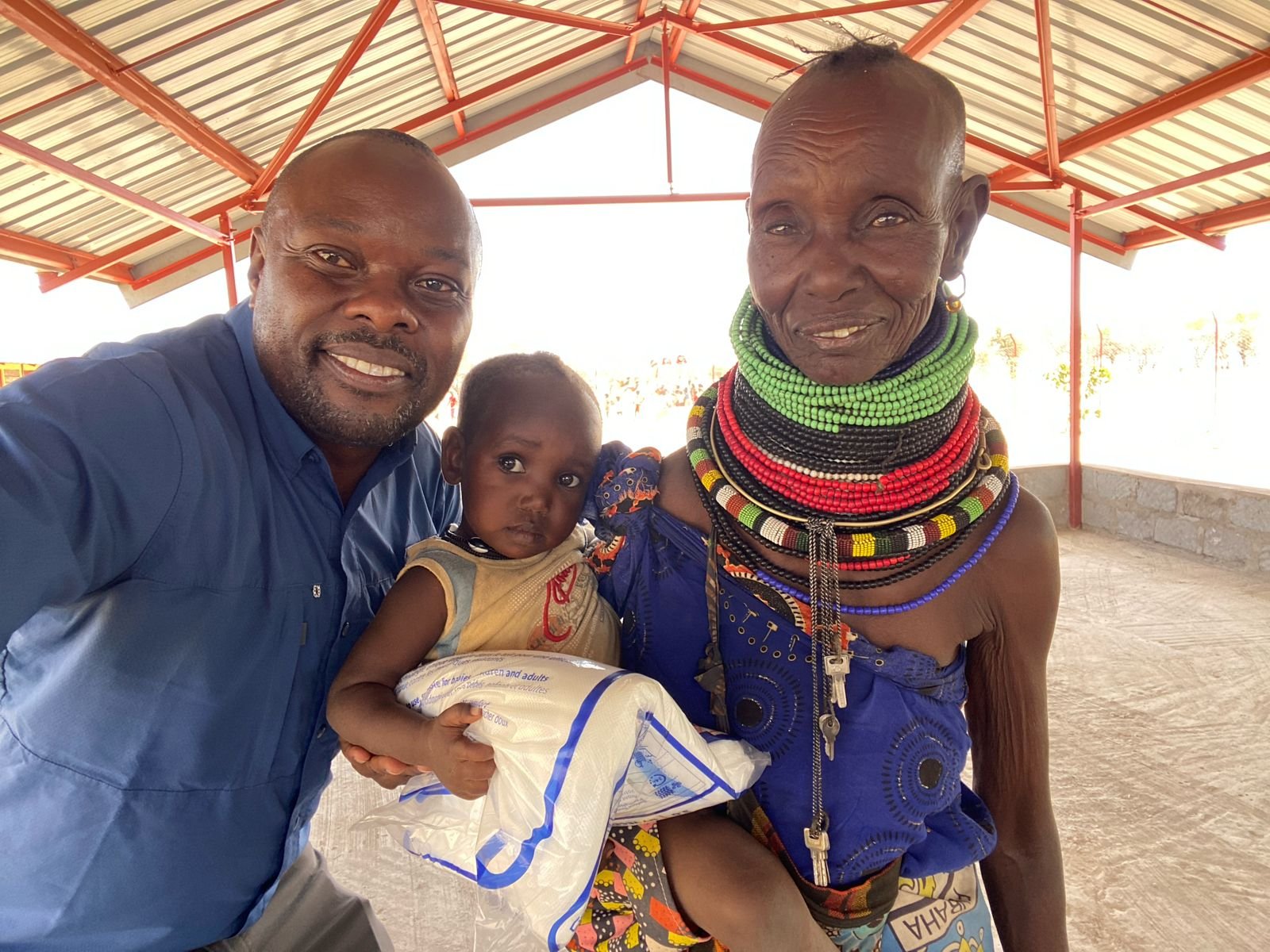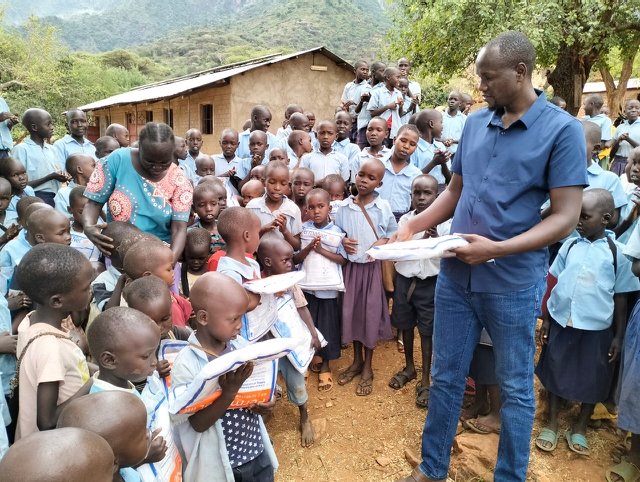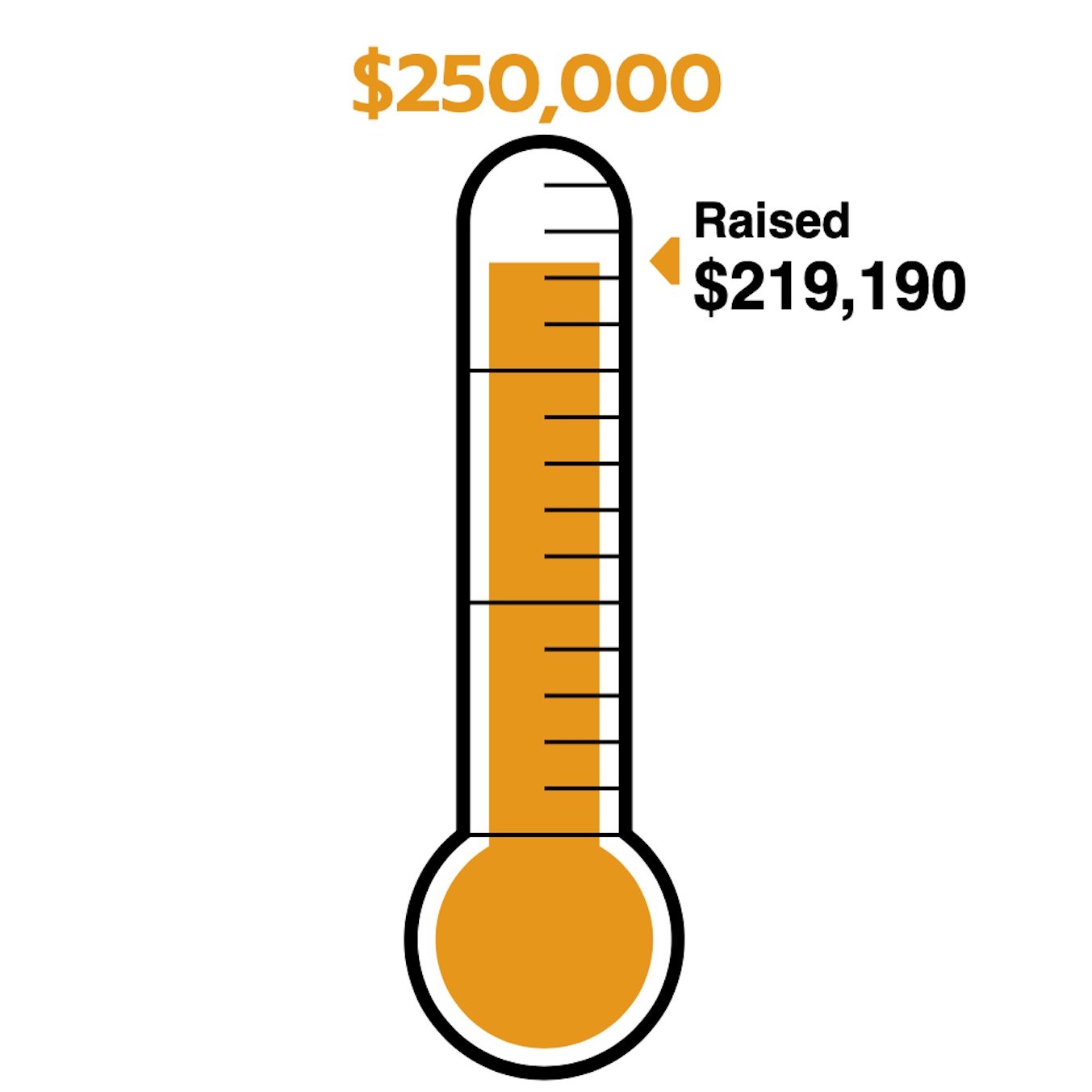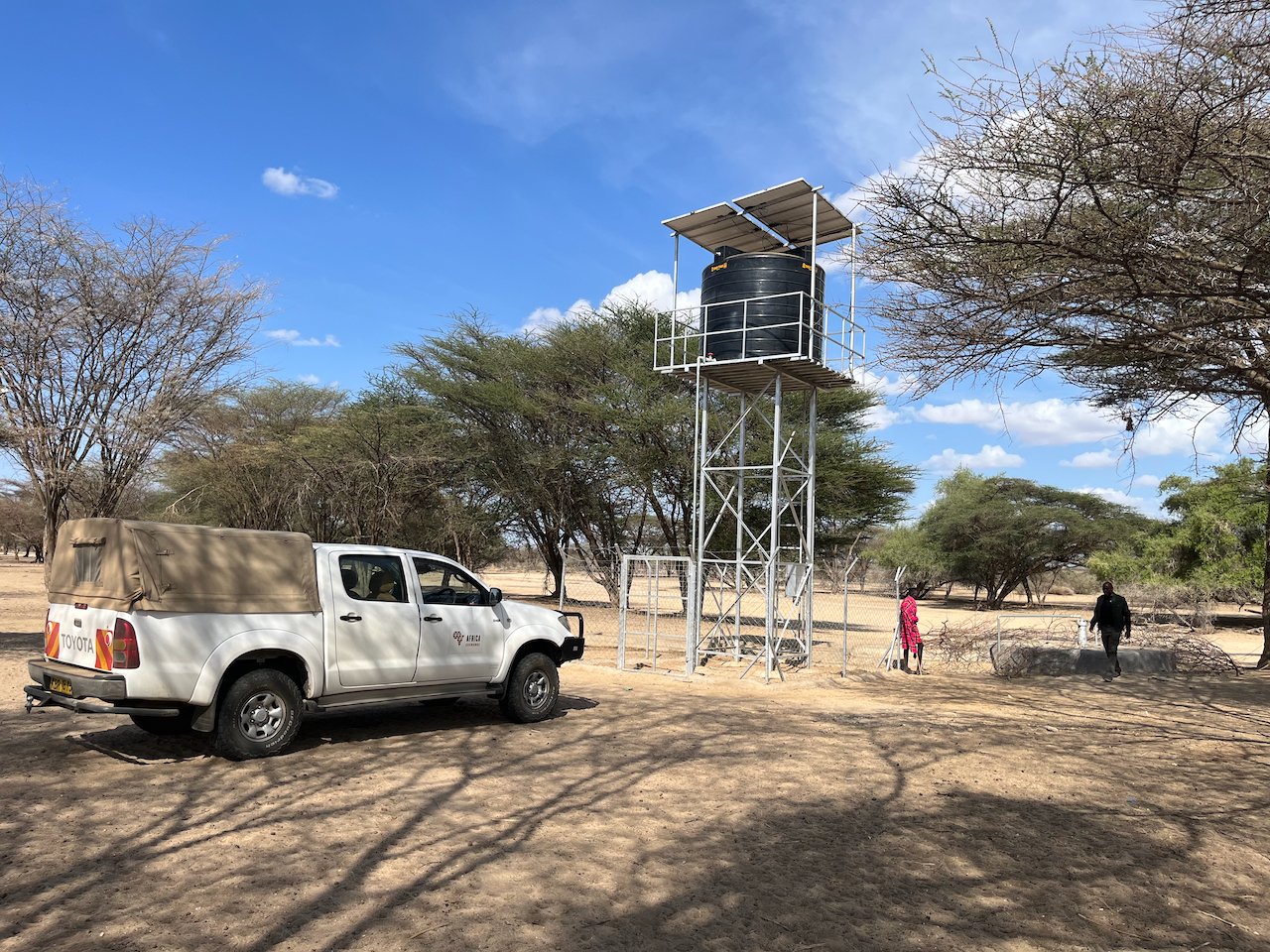
BLOG
Our latest accomplishments, progress reports, & musings.
What would be missing?
Our friend and now retired pastor, Bob, recalled during his final sermon a recent interview process in hiring their now well-loved minister of children and families. When she was invited to ask her own questions, the staff were stunned when she asked, “What would be missing in this community were you as a church, not here?” What a thought-provoking question! It led them all to reflect both corporately and privately on what exactly would be missing in their corner of the world, were they not involved in being a place of worship as well as service to the community around them.
My mind went immediately to Africa Exchange and our work in Kenya. What would be missing were we not in the now 14 communities in which we work? Do we make enough of a difference that not being a resource in the lives of children, families and communities would mean a direct impact of some kind of loss in their lives? I know beyond a doubt, the answer is a resounding YES!
Children enjoying mid-morning uji (porridge) in Makutano, West Pokot
If a child in the Lochor Esekon Integrated Child Development center in Turkana were asked what would be missing in their lives with the absence of their Integrated Child Development Center, I imagine they would say “My porridge!” We ensure the children at our centers are given a fortified porridge each day to guarantee sound nutritional support, knowing this is the first building block for learning. The families who populate these centers love their children but can’t always ensure consistent nutrient based feeding which is dependent on their own subsistence income, a sad reality when you live in harsh, arid and semi-arid lands. Can you imagine the relief it is, knowing your child will be fed each and every day at school?
If a parent at Sisit ICDC in Pokot were asked what would be missing, I imagine they would say “Water! We wouldn’t have water and would have to return to walking the 30 minutes down the mountain and back to carry it on our backs from the river. And the suspension bridge over the Wei Wei River that allows access to medical care, the community center, and school for our older children”. These resources have taken years to develop and maintain but are commitments we have made to the community, in response to their requests, knowing the difference it makes in their quality of life.
If a committee member at the newly opened Ola Rangi Integrated Child Development Center in Kalacha, home to the Gabra people, were asked what would be missing were AFEX not committed to working in their community, I imagine they would say “Education! Our new center ensures our children can learn in their own space, supported with the current Kenyan curriculum for ECD, trained teachers, and dedicated focus to the healthy growth of the minds, bodies, and spirits of our children.”
My pondering continued and led me to consider all those who support all the good work of Africa Exchange across Kenya. What would be missing were they not so generous? What would be missing for our secondary and university scholars where there not key people committed to the future of these teenagers and young adults? What work could not occur if there weren’t those who believe in what we do and love to see children and families thriving in their own communities?
There is always more to which we are called. Always more to the invitation to participate in one another’s lives, lifting up those who are disadvantaged, and more to learn from those who know what it is to suffer. May we answer our calling faithfully and with clarity about what would be missing were we not there. May we continue to embody our vision together with communities across Kenya so that our partnerships make a tangible difference in peoples’ day to day lives. And may those who participate with us be strengthened in their resolve that there is too much to be missed to not take up the calling to care.
Kalacha Reflection
by Dr. Nathaniel Robinson, Board Chair - Africa Exchange
Kalacha oasis, Chalbi Desert, Northern Kenya
I recently traveled with Sam, Mark, Simon, and a close friend to Kalacha, a small town on the edge of the Chalbi Desert in northern Kenya. Africa Exchange is currently developing three new ICDC sites there, and this visit held special meaning for me: Kalacha is where my father conducted his Ph.D. research. He documented the Gabra people’s oral history and ecological knowledge—insights that have enabled them to survive in environments many would consider impossibly harsh. During some of the most severe droughts of the 1970s and 1980s, the Gabra not only survived but thrived, even as neighboring communities and their livestock struggled.
My oldest sister spent her earliest years in this community, and throughout my childhood, we often made the long, dusty trek to Kalacha. My father led university field courses here, exposing students to these arid conditions and to a culture built around constant movement in search of water and pasture. From an early age, this taught me invaluable lessons about resilience, adaptation, and openness to change.
When we left Nairobi, I had few expectations for our journey north. Many parts of Kenya have grown and transformed at astonishing speeds—cities and towns turning into bustling hubs and fenced-off plots. But as we descended out of the central highlands into hotter, drier regions, beyond popular tourist destinations, I caught a glimpse of a more familiar Kenya. While the small centers and towns we passed were somewhat larger and busier than I remembered, they still felt rooted in local traditions rather than overrun by modern sprawl.
With paved roads and the ban on plastic bags, these centers felt cleaner than in the past. Between them, the dry scrublands appeared relatively intact, shielded by their remoteness from the agricultural transformations seen elsewhere. Driving through the rugged lava fields of northern Kenya and across the Chalbi Desert, I felt relief at seeing Kalacha largely recognizable. The tiny house where my parents lived in the late 1970s still stands, and the extensive Acacia tortilis woodlands remain, offering the same shade they did decades ago.
Despite this apparent timelessness, “progress” in other forms has reached the area. National policies and government services often marginalize nomadic pastoralists like the Gabra. Many still maintain mobile huts and settlements, but their ability to move freely is rapidly diminishing. Climate change compounds this challenge—erratic rainfall, harsher droughts, and sudden floods undermine the once-reliable cycles the Gabra have followed for generations. In my father’s more recent interactions, elders report they can no longer predict rains or droughts in the way they used to, eroding traditions and oral histories tied to seasonal rhythms.
Meanwhile, key resource areas once held in reserve for drought periods are increasingly settled by agriculturalists as land across Kenya becomes privatized. This trend is also impacting the Gabra as they try and farm the desert fringes around Kalacha. The process reduces the Gabra’s freedom to relocate and fundamentally challenges their way of life.
In this context, there’s a dilemma: do new ICDC sites unintentionally encourage permanent settlement, further eroding mobility? Or do they enhance the likelihood of improving livelihoods in a context where settlement is inevitable. Communities around Kalacha have already made the decision to settle. These are the places where Africa Exchange, in partnership with the Catholic Mission in Kalacha, the Northern Kenya Fund and the Marsabit County Education Dept., is working. Balancing the need for services with the preservation of traditional livelihoods is complex, but it’s also essential if we hope to support a resilient future for the Gabra and other pastoralist communities in the region.
Looking ahead, we believe that community-driven education can be a cornerstone for the Gabra’s future. While their traditional pastoralist lifestyle may be changing, an ICDC can serve as both a safeguard and a bridge—preserving cultural knowledge while providing practical tools for today’s realities. This approach acknowledges the challenges brought by shifting climates, policies, and settlement patterns, yet also honors the Gabra’s resilience and adaptability. Through collaboration with local leaders, we hope these centers will offer not just survival, but the foundation for children who in turn w create a vibrant and sustainable way forward for their communities—even as we lament the loss of certain traditions in this ever-evolving landscape.
Not Loud . . . But very Busy!
“The majority of positive change and good deeds in the world happen "under the radar," meaning they are not widely publicized or recognized, but instead occur quietly through the everyday actions of individuals in their communities, often going unnoticed by the larger public. “
Krista Tippet, On Being
This resonates deeply with us because we have observed it to be true. The impact of hard, everyday work done together with communities is often difficult to communicate, certainly beyond the description of raw statistics. This is particularly so with work that is done among those trying to survive in the margins. And yet, what a privilege to be able share how your support has enabled so much good! For us, 2024 was undoubtedly one of our busiest ever and we’re thrilled to share with you our progress, program by program.
Everything begins with “KUTANA,” here meeting together in the Chalbi Desert with the Ola Rangi community
KUTANA
And meet together we did! Under trees, interacting as groups in seminars for capacity building, cross-culturally between partners and communities and with our board to chart ways forward. Our chosen method of participatory community development takes time and is hard! On the one hand we’re asking communities who are already stressed to bring what they have to the table, to recognize that even they have gifts to share; on the other hand we’re inviting individuals and partners who are blessed with abundance to share of themselves and their resources in a manner that uplifts and honors while remaining open to being changed. We’re asking communities that are enduring conflict with neighboring groups to bridge the gap by bringing their young children to learn together.
Change for Children
A Year of WASH!
WASH refers to Water Sanitation and Hygiene. Our challenge was to bring all of our Integrated Child Development Centers into “Wash Compliance.” And we’re 90% there! Handwashing stations everywhere, water filters where needed, plus oral health pilot projects to name a few.
New Curriculum
Simon, our Change for Children Coordinator, introduced educational resources in the form of curricular materials consistent with Kenya’s new Competency Based Curriculum. The “CBC,” provides our teachers with current and relevant methodologies for early childhood education and development.
Scholars Retreat
At the other end of the spectrum, graduates of our programs gathered in April under Mark Okello’s guidance for an impactful annual Scholars Retreat with the theme “poverty alleviation through leadership and entrepreneurship.”
Our nine TVET (technical/vocational education and training) and university scholars received laptops for the first time thanks to a generous gift from a very special donor!
Development Initiatives
Facilitating our WASH compliance efforts involved upgrading two kitchens and a water source
Integrated Child Development Center Expansion in Arid and semi-arid lands (ASAL) regions
Ola Rangi, under construction
We have an ambitious goal to add three Integrated Child Development Centers in the Chalbi Desert region by the end of 2025. The first one is nearing completion and is slated to open in January! Ola Rangi ICDC will serve 45 households in this Gabra village by providing early childhood education services for 40 children. Stay tuned for more!
Keeping Earth
As part of our Trees for Life project, we added three new tree nurseries this year. Each nursery facilitates the growth of seedlings that supply a respective Integrated Child Development Center with trees for community planting each term.
The projects highlighted above represent but a fraction of the good work being done in communities across Kenya. We maintain support and guidance in 14 communities, providing nutrition, education, WASH, malaria prevention and other health related services in each community. Our focus on capacity building in Arid and semi-Arid Lands is critical to scaling integrated early childhood development as we provide a critical “proof of concept” for county education departments in each location.
WILL YOU BE A PART of enabling us to continue these services in existing and new communities in 2025?
Life in the Desert
Shade is sparse on the edge of the desert, so isolated trees become important places for congregating. During our recent site survey to Kalacha, on the edge of the Chalbi Desert in Northern Kenya, Acacia (Vachellia) Tortilis trees provided what was required as we met three incredible communities that we now look forward to working with. Years of experience has taught us to look beyond initial impressions to discover the remarkable resilience that is so often a feature of people who live at the margins of existence. Certainly that is the case with these Gabra pastoralist communities that have endured recent historic drought, followed this year by unprecedented rains. Despite loosing 80% of their goat and camel herds to a climate in destress, remarkably they press forward.
Signs of life and initiative are very evident as each of these communities strive to facilitate the development of children under six in preparation for their eventual matriculation to primary schools that are some distance away. Whether under the shade of a tree or a temporary classroom built with assistance from the local Catholic mission or County administration, these three communities are moving forward with what is available to them. Hearing of our interest in joining together with them in partnership in this endeavor, we were welcomed with copious amounts of camel-milk tea and even a little dancing!
We sat and listened to the challenges articulated by each community:
“The camels keep eating the palm fronds from the roof of the classroom!”
“Hyenas endanger those (women and children) who walk long distances to collect water in the very early morning”
“A single 12x12 classroom cannot accommodate the numbers of children we have, now that we are forced by circumstances to settle closer together.”
Interacting with the community to understand and respond to concerns
Over the next two years, we plan to construct three modified Integrated Child Development Centers in the region surrounding Kalacha. We will also endeavor to pipe water from nearby wells to store at each location, enhance the capacity of available teachers and work with local partners to ensure the adequate provision of nutritional supplements, education materials and tree shade.
2024 begins with a bang!
ACK Baragoi ICDC officially open!
On January 8, 2024, we opened our 14th Integrated Child Development Center in Baragoi in partnership with the Anglican Church of Kenya (ACK). Baragoi has seen it’s share of instability and this effort is key to the continuation of peace building efforts between the Samburu and Turkana communities who often find themselves at odds over territory and grazing rites in this semi-arid region of Northern Kenya.
On the day of the opening, close to 60 children were enrolled! A staff of two teachers and a cook together with the ICDC committee of the local parish will maintain operations. We are so very grateful to the Gary Moser Fund for Africa for their support of this project.
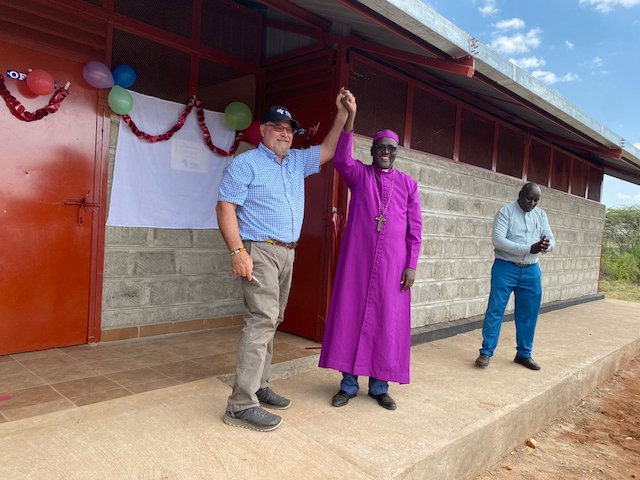
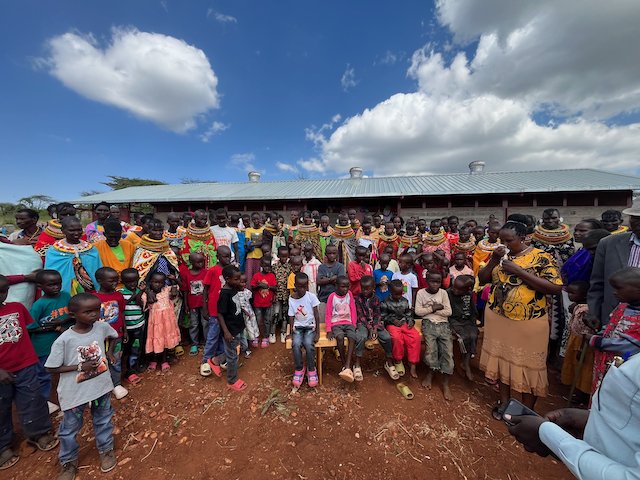
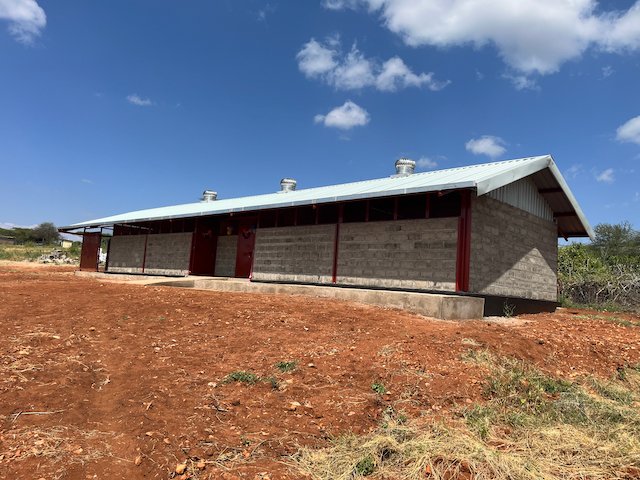
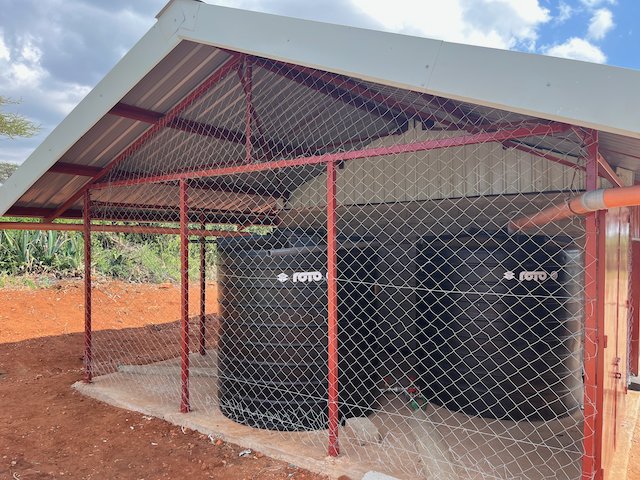
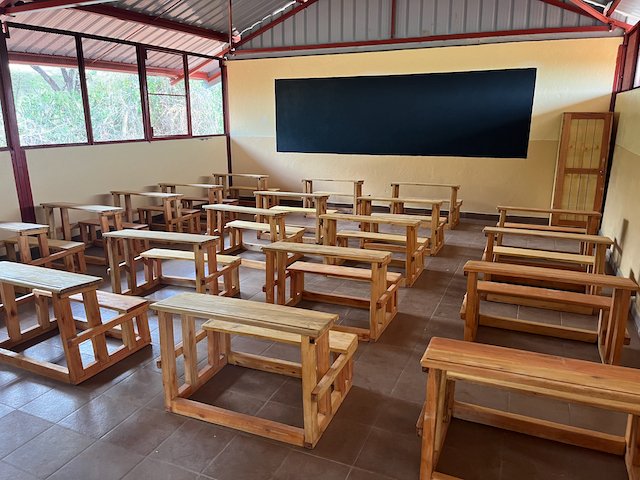

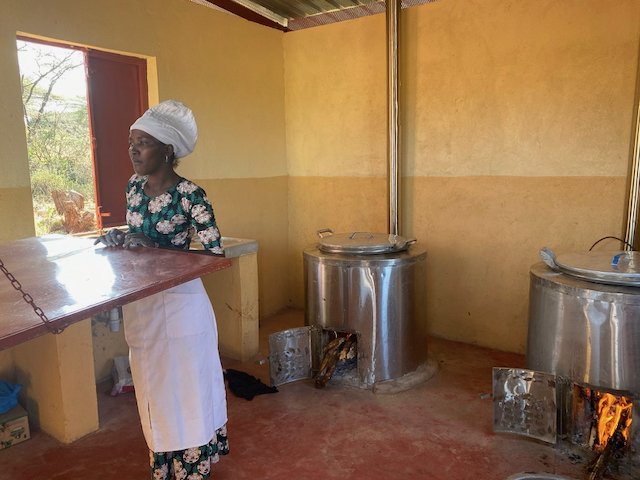
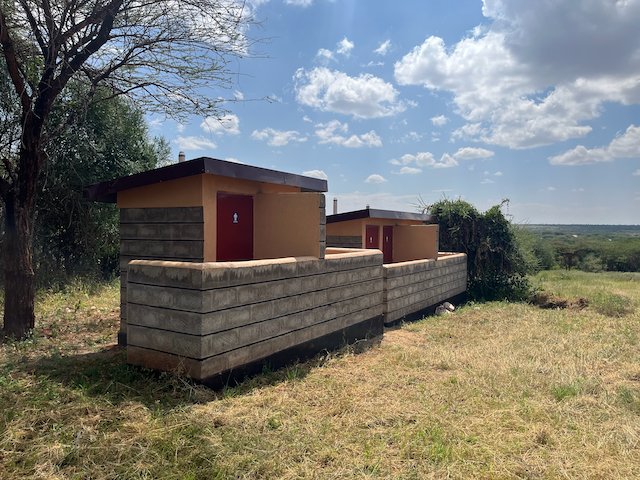
Lochoresekon Gets a Dining Pavilion
Our Northernmost ICDC to date is in Turkana, an extremely arid region where trees and shade are very sparse. Mid January saw us engaged in the construction of our first dedicated dining pavilion which will offer shade for meals as well as for community meetings.
A Permanent Water Supply in Sisit!
Drilling boreholes, installing solar powered submersible pumps, and providing simple water filters and handwashing stations are all part of the infrastructure of our ICDC hubs. After years of experimenting with various methods of water delivery to our Sisit project, and after our most recent effort was destroyed by catastrophic flooding of the WeiWei river, through the help of many friends and the Heritage Mission Fund we were finally able to drill a borehole and equip a solar pumping unit to transport water up the mountain some 2 km away for use at our school and the surrounding community! The water is also used to irrigate the kitchen garden and the tree nursery that our unit uses to feed children and supply seedlings to surrounding homesteads.
Water is life!
〰️
Water is life! 〰️
supplies all around!
The year begins with supply rounds and visits to each center by our Kenya Programs Manager, Mark Okello. This year he was accompanied by Simon Lokurchana, our new Change for Children Coordinator. Mark and Simon were kept busy delivering treated mosquito nets, uji (porridge) and other food and general school supplies. This year we were thrilled to add our newly published book called “Let’s Plant a Happy Tree” to the portfolio of supplies.
We're So Close!
25th Anniversary Challenge
In October of last year we celebrated 25 years of Africa Exchange! As part of our celebration, we launched a 25th Anniversary Challenge which included the inauguration of a Change for Children Scholarship Endowment fund. Our Challenge goal of $250,000 is comprised of a target of $150,000 in new or “over and above” contributions and $100,000 toward the scholarship endowment. Very generous friends of Africa Exchange pledged to seed the endowment with matching funds of up to $100,000 donated toward the Challenge. We’re thrilled to report that in June we reached our first target that translates into fully matched funds, and now with a little over two months to go, we’re almost at our goal with just over $30,000 remaining!
The Change for Children Scholarship Endowment funds will ensure that bright, motivated students with roots in our Integrated Child Development Centers will have what they need to secure secondary and tertiary education as a launching pad to their future. Currently 24 students are fully supported through our Scholars Project.
The balance of Challenge funds ensures that we are able to initiate critical development projects in partner communities, build the capacity of local committees, strengthen the skills of teachers and staff at our ICDC units and expand our efforts to new communities just beyond the current horizon of help.
Can we count on you to stand with us in all these efforts? THANK YOU in advance for helping us meet our goal with just two months remaining!








